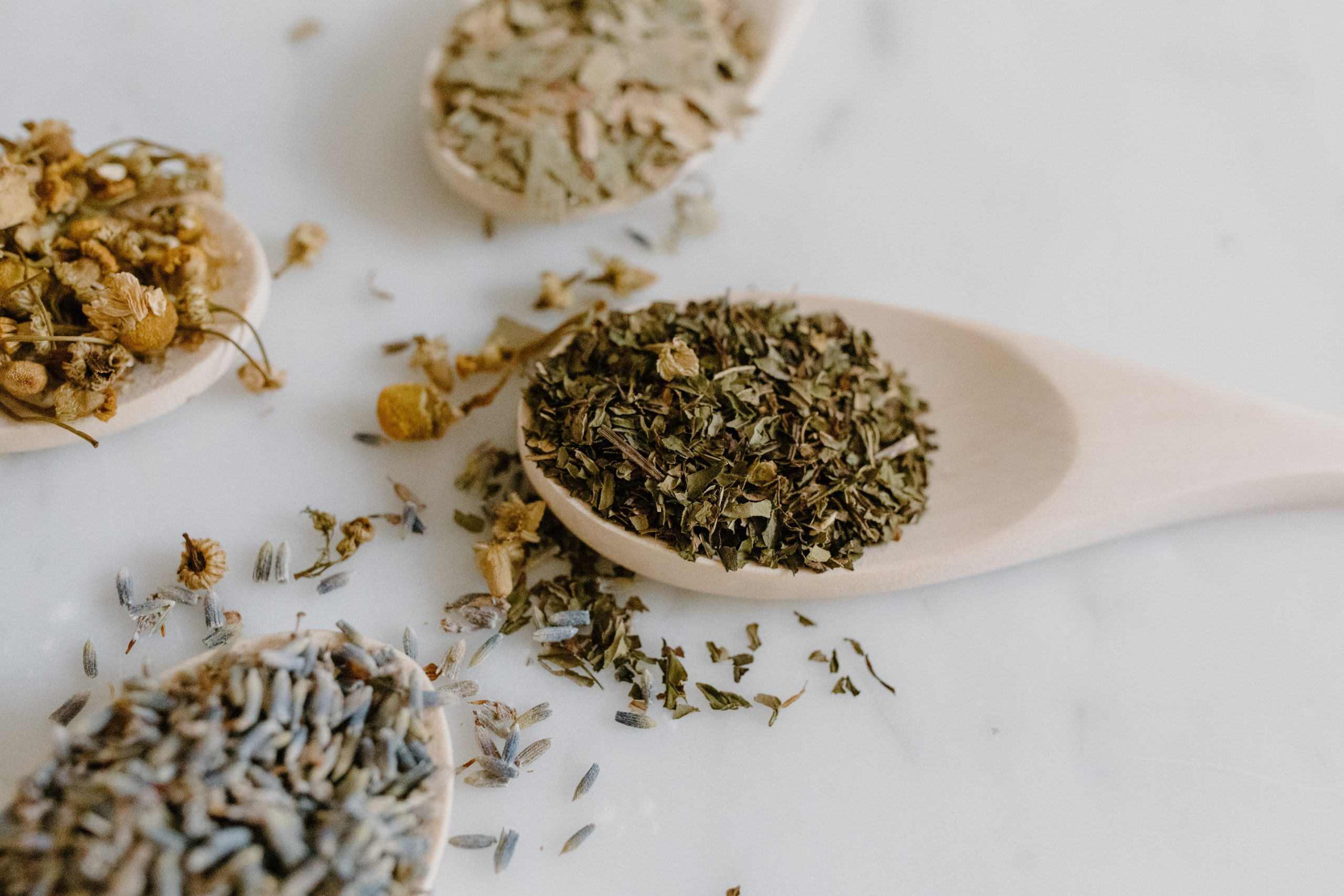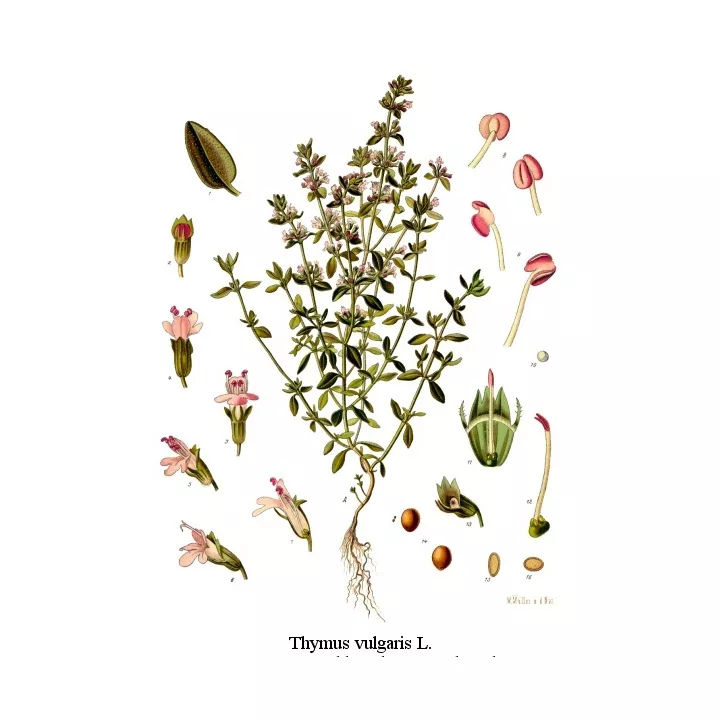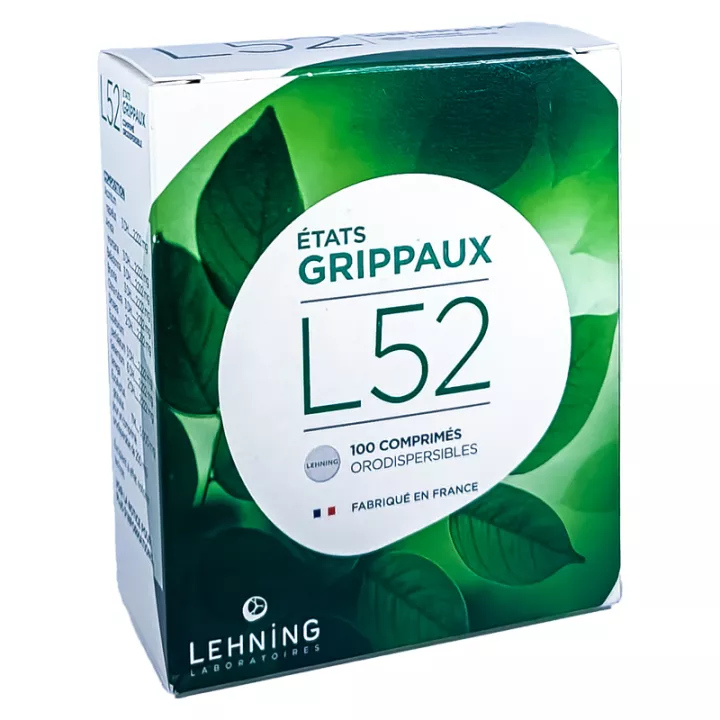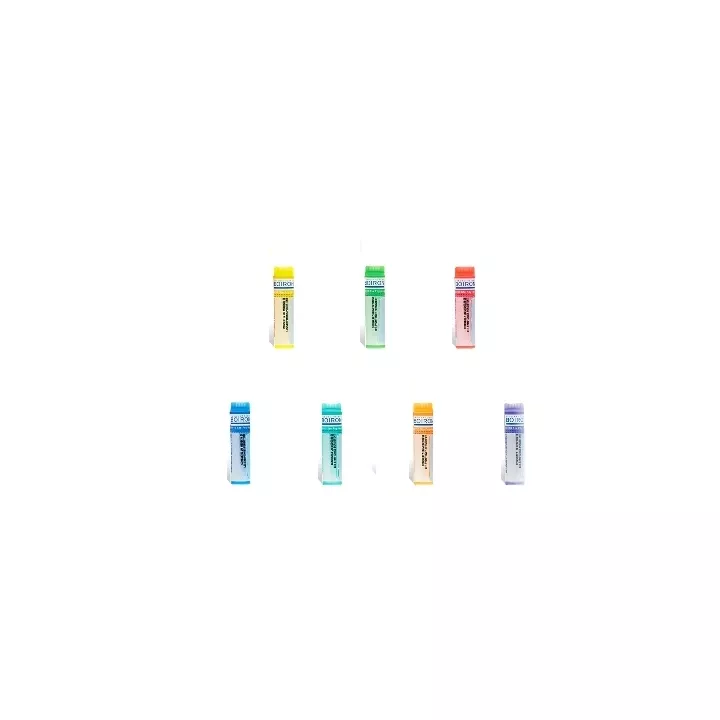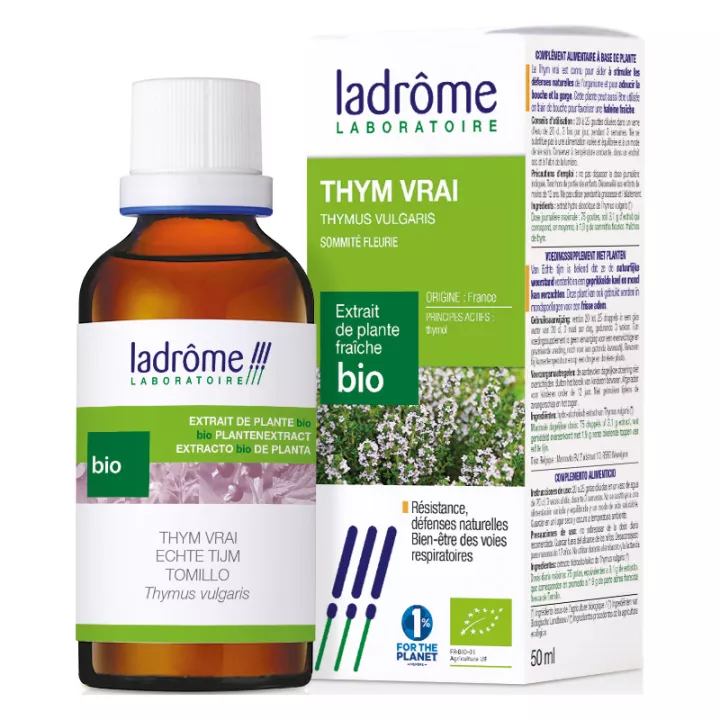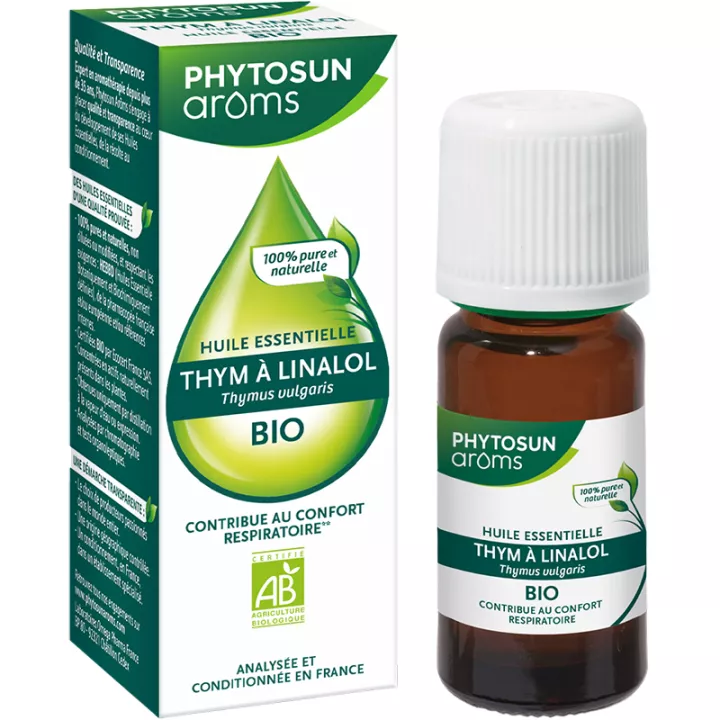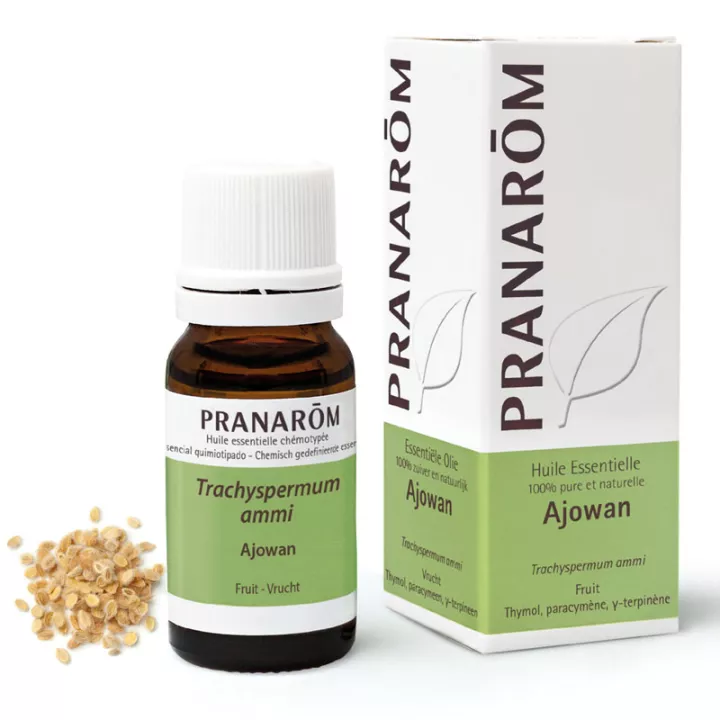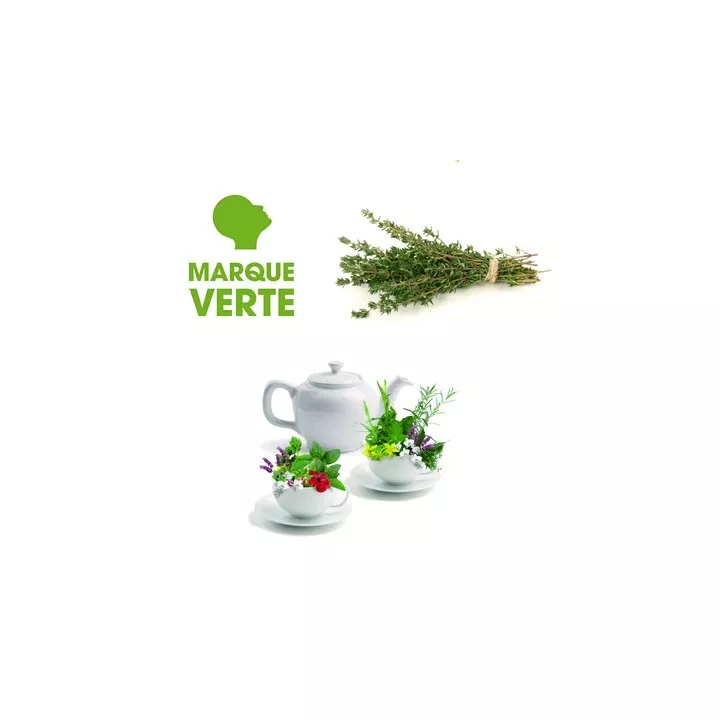What is thyme used for?
Thyme (Thymus vulgaris) is a medicinal and culinary plant widely recognized for its many therapeutic properties. Native to the Mediterranean region, it is intensively cultivated for its dried leaves and flowers, which contain essential active ingredients including essential oils such as thymol, carvacrol and p-cymene. These compounds make thyme an essential health ally.
Traditionally, thyme has been used to aid digestion. It helps alleviate symptoms of dyspepsia, such as bloating and flatulence, by stimulating bile secretion and improving intestinal transit. Its antispasmodic action, demonstrated in some animal studies, helps calm intestinal spasms, making thyme particularly useful for those suffering from digestive disorders.
Thyme is also renowned for its benefits to the respiratory system. Its use as an expectorant is recognized in the treatment of respiratory ailments such as colds, bronchitis and hacking coughs. Research has shown that thymol and carvacrol promote mucus evacuation, making breathing easier. A clinical study revealed that thyme syrup was just as effective as bromhexine syrup in relieving wet coughs in patients, demonstrating its efficacy in this area.
Thyme's traditional uses don't stop there. As a gargle or mouthwash, thyme can soothe throat inflammation and contribute to better breath. A concentrated infusion is also used to relieve painful menstruation, offering welcome comfort during this period. Thyme also has antiseptic properties, helping to disinfect wounds and promote healing. Applied locally, it can reduce mild skin infections.
The World Health Organization (WHO) and the European Medicines Agency (EMA) officially recognize thyme's benefits in the treatment of dyspepsia and respiratory disorders. The EMA recommends its use for adults and children over the age of twelve, confirming its status as an established traditional remedy.
Marque Verte also offers Thyme Sachet Filtre Infusion at the best price in our online pharmacy.
How to use this plant
To take full advantage of thyme's benefits, we recommend preparing an infusion. The usual dosage is 1 to 2 g of dried leaves per cup of boiling water, to be taken several times a day. Thyme tea can also be inhaled by adding a few drops of essential oil diluted in hot water, to clear the respiratory tract.
For gargles or mouthwash, we recommend a more concentrated infusion, with 5 g of dried plant per 100 ml of water. This method is particularly effective for relieving sore throats and reducing inflammation. In cooking, thyme can be added to a variety of dishes, enriching your meals while benefiting from its medicinal properties.
Give your opinion on Thyme's directions for use and dosage with our partner Verified opinions after your purchase.
Precautions for use:
Although thyme is generally harmless, some people may develop an allergy to the active ingredients, especially after repeated exposure. People allergic to plants in the Labiatae family, such as mint, sage or lavender, are advised to exercise caution.
Adverse reactions to thyme are rare, but may include skin reactions in sensitive individuals. If symptoms such as itching, nausea or abdominal pain occur, it's best to discontinue use. There are no known drug interactions, making thyme a relatively safe addition to any health regime.
As for pregnant women, although no toxicity to the foetus has been demonstrated, it is advisable to limit the use of thyme for culinary purposes. Similarly, breast-feeding women should avoid using thyme in significant quantities, as its active ingredients can pass into breast milk. For children, the use of thyme may be considered, but only under medical advice, especially for those under the age of four.
What is its composition?
Latin name: Thymus vulgaris L. / Thymus zygis L.
Family: Lamiaceae
Common names : Thyme, common thyme, farigoule, farigoulette
Parts used: Leaves
Origin: Mediterranean Basin
Active ingredients: E.H., flavonoids, phenolic acids, pentacyclic triterpenes, polysaccharides
Presentation: Available in 100 g, 250 g or 1 kg sachets.
